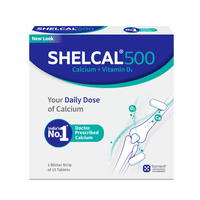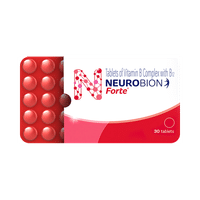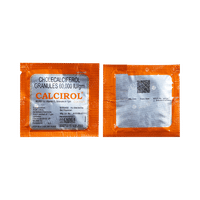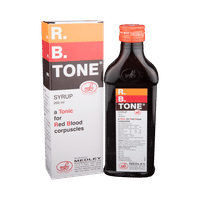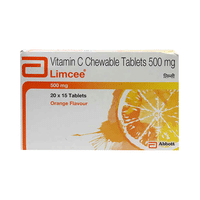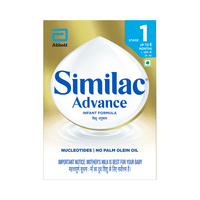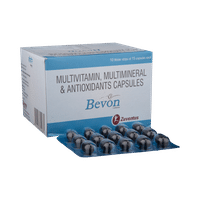Benidin Trio 4mg/40mg/6.25mg Tablet

Rs.125for 1 strip(s) (10 tablets each)
food interaction for Benidin Trio
alcohol interaction for Benidin Trio
pregnancy interaction for Benidin Trio
lactation interaction for Benidin Trio
food
alcohol
pregnancy
lactation
Benidin Trio 4mg/40mg/6.25mg Tablet may be taken with or without food, but it is better to take it at a fixed time.
None
None
CAUTION
It is unsafe to consume alcohol with Benidin Trio 4mg/40mg/6.25mg Tablet.
UNSAFE
Benidin Trio 4mg/40mg/6.25mg Tablet is unsafe to use during pregnancy as there is definite evidence of risk to the developing baby. However, the doctor may rarely prescribe it in some life-threatening situations if the benefits are more than the potential risks. Please consult your doctor.
CONSULT YOUR DOCTOR
Information regarding the use of Benidin Trio 4mg/40mg/6.25mg Tablet during breastfeeding is not available. Please consult your doctor.
CONSULT YOUR DOCTOR
SALT INFORMATION FOR Benidin Trio
Benidipine(4mg)
Uses
Benidipine is used in the treatment of Hypertension (high blood pressure) and Angina (heart-related chest pain).
How it works
Benidipine is a calcium channel blocker. It regulates the blood pressure by relaxing the blood vessels and reducing the pressure on them, thereby making it easier for the heart to pump more blood throughout the body. In this way, it normalizes the blood pressure in patients with high blood pressure. This enhanced blood flow also improves the oxygen flow in the body, thereby, preventing any heart-related chest pain (angina).
Common side effects
Fatigue, Ankle swelling, Sleepiness, Flushing (sense of warmth in the face, ears, neck and trunk), Headache, Dizziness, Palpitations, Nausea, Edema (swelling), Abdominal pain
Telmisartan(40mg)
Uses
Telmisartan is used in the treatment of Hypertension (high blood pressure), Heart failure, fever and prevention of heart attack and stroke.
How it works
Telmisartan is an angiotensin receptor blocker (ARB). It relaxes blood vessels by blocking the action of a chemical that usually makes blood vessels tighter. This lowers the blood pressure, allowing the blood to flow more smoothly to different organs and the heart to pump more efficiently..
Common side effects
Diarrhea, Asthma, Angioedema (swelling of deeper layers of skin), Increased white blood cell count (eosinophils), Low blood platelets, Impotence, Migraine, Upper respiratory tract infection, Back pain, Cough, Hypersensitivity, Sinus inflammation, Skin ulcer, Vertigo, Intermittent claudication, Increased sweating, Flushing (sense of warmth in the face, ears, neck and trunk), Fever, Piles, Bronchitis (inflammation of the airways), Joint inflammation, Dryness in mouth, Cystitis, Nausea, Ringing in ear, Decreased hemoglobin, Tachycardia, Increased creatinine level in blood
Chlorthalidone(6.25mg)
Uses
Chlorthalidone is used for Hypertension (high blood pressure) and Edema. It treats oedema (fluid overload) associated with heart, liver, kidney or lung disease.
How it works
Chlorthalidone is a diuretic which lowers blood pressure by removing extra water and certain electrolytes from the body. Over time it also relaxes blood vessels and improves blood flow.
Common side effects
Headache, Nausea, Vomiting, Dizziness, Vertigo, Orthostatic hypotension (sudden lowering of blood pressure on standing), Erectile dysfunction, Electrolyte imbalance, Increased glucose level in blood, Increased uric acid level in blood, Weakness, Hypersensitivity, Renal impairment, Cholestasis, Jaundice, Photosensitivity
SUBSTITUTES FOR Benidin Trio
1 Substitutes
1 Substitutes
Sorted By
 Rs. 125save 3% more per Tablet
Rs. 125save 3% more per Tablet
Expert advice FOR Benidin Trio
- You have been prescribed Benidipine to improve your blood pressure and/or to reduce the number and severity of angina attacks.
- Lowering blood pressure reduces the chance of future heart attack and stroke.
- Take it at the same time every day to help you remember to take it.
- A sudden drop in your blood pressure may occur, especially when you first start taking Benidipine. To lower the chance of feeling dizzy or passing out, rise slowly if you have been sitting or lying down.
- It can cause ankle or foot swelling. To reduce the swelling, raise your legs while you are sitting down. Talk to your doctor if it does not go away.
- It may cause dizziness. Do not drive or perform any activity that requires mental focus until you know how Benidipine affects you.
- Inform your doctor if you are pregnant, planning a pregnancy or breastfeeding.
Frequently asked questions FOR Benidin Trio
Benidipine
Q. What is the use of Benidipine?
Benidipine is a medicine used to treat hypertension (high blood pressure) and Angina (heart-related chest pain). It belongs to a group of medicines that block the calcium channels in the blood vessel. It works by relaxing the blood vessels in patients with high blood pressure. This widens the diameter of the blood vessels which helps the blood to pass through them more easily.
Q. What are the side effects of Benidipine?
Benidipine is generally well tolerated but sometimes can also be associated with side effects like headache, dizziness, flushing, palpitations, nausea, and stomach pain. It may also cause sleepiness, ankle swelling, and fatigue. These side effects are not common in everyone but may occur in some individuals. Do consult your doctor if you notice any side effects after taking this medicine.
Q. Is Benidipine good for patients of high blood pressure with kidney impairment?
Yes, Benidipine has been shown to have protective effects on the kidney cells, thereby preventing them from damage. It has also been shown to decrease protein leakage from the kidney in patients who have diabetes as well as high blood pressure.
Telmisartan
Q. Should Telmisartan be taken in the morning or at night?
Telmisartan is generally recommended to be taken once daily, either in the morning or in the evening. Consider taking it at the same time each day as it will help you to remember taking it.
Q. How long does it take for Telmisartan to work?
You may see an improvement within a few days. But, the maximum benefit can be seen within 4-8 weeks of starting treatment.
Q. My blood pressure is now controlled. Can I stop taking Telmisartan now?
No, do not stop taking Telmisartan without consulting your doctor even if your blood pressure is controlled. Stopping it suddenly may increase your blood pressure which could be detrimental for you. Telmisartan does not cure high blood pressure but controls it. So, you may have to take the medicine lifelong. Talk to your doctor if you have any concerns.
Chlorthalidone
Q. Can I drink alcohol while taking Chlorthalidone?
No, do not take alcohol while on treatment with Chlorthalidone. Taking alcohol with Chlorthalidone may lower your blood pressure suddenly making you feel dizzy and lightheaded.
Q. What happens if I take more than the recommended dose of Chlorthalidone?
If you take more than the prescribed dose of Chlorthalidone, you may experience nausea, lightheadedness, weakness, fast or irregular heart beat, sleepiness, muscle cramps and pain, difficulty in breathing. Taking this medicine in high doses may even cause a heart attack. In a situation like this, contact your doctor immediately or seek emergency help in a nearby hospital.
Q. Can I take ibuprofen with Chlorthalidone?
This combination is best avoided since the two medicines may interfere with each other. However, if your doctor advises you to take both ibuprofen and Chlorthalidone, you will need to keep a regular check on your blood pressure and also monitor your kidney function tests.













